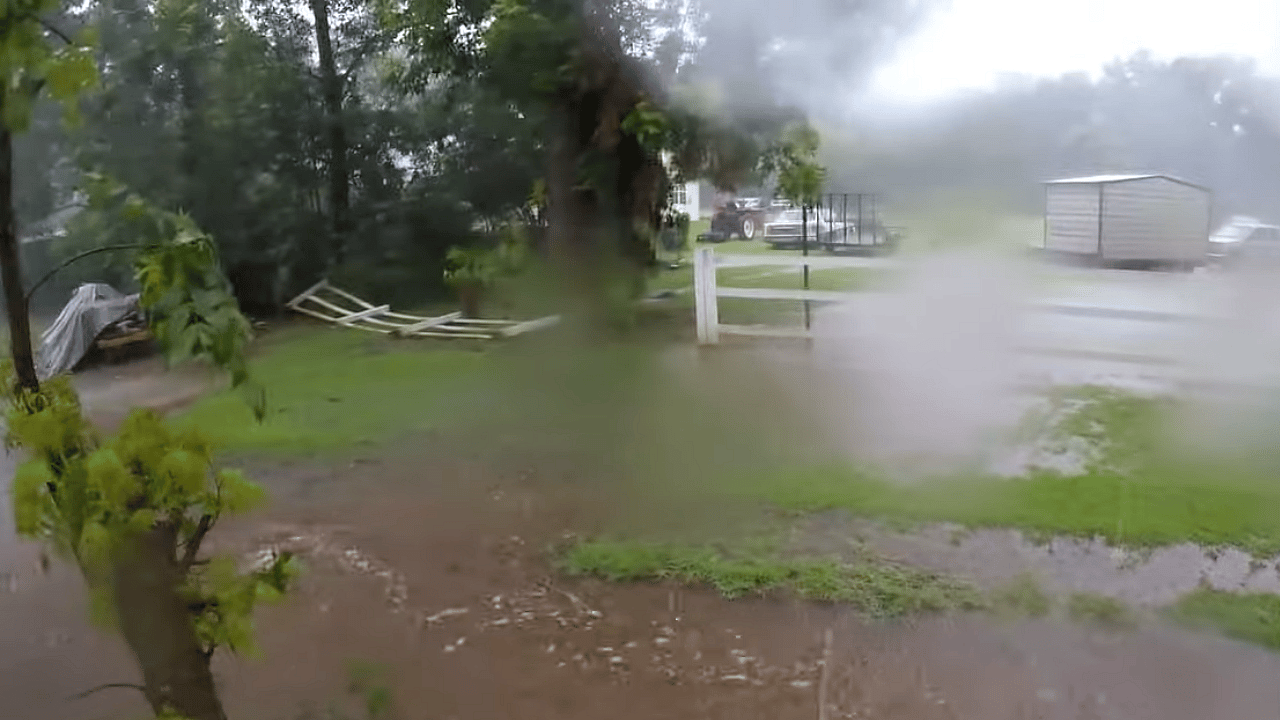Black residents in Alabama’s Coffee County have accused state officials of misleading them to complete a highway project, claiming they’re allegedly not taking accountability for the issues they caused in the process.
Residents in the Shiloh community expressed concerns that the expansion of U.S. Highway 84 caused extensive, recurring flooding on their properties. In response, an ABC News investigation found that state authorities used an aggressive legal tool to prohibit current and future landowners from holding the state government accountable in court.
Three residents now have restrictive covenants on their property titles that “absolutely release, remise, acquit, and forever discharge” the Alabama Department of Transportation from responsibility for flood damage. Documents indicate that in exchange for giving away their rights, they each received settlements of $5,000 or less.

In 2020, Alabama Gov. Kay Ivey and John Cooper, the state’s transportation director, signed the agreements on the state’s behalf. ALDOT claims the agency believes no unfair treatment transpired and the project did not discriminate against anyone.
“In the settlements involving ALDOT, there were restrictive covenants to prevent future owners from filing claims,” the agency said in a statement to ABC News after declining interview requests, “because ALDOT maintains that it has not increased the volume of stormwater runoff being placed on the Shiloh Community.”
Shiloh sits alongside Highway 84, which ALDOT and its contractors widened from a rural two-lane road to a major four-lane roadway as part of the El Camino East-West Corridor, a large-scale infrastructure project spanning multiple Southern states. ALDOT completed local construction between 2017 and 2019.
ALDOT first proposed the project in the 1990s, highlighting El Camino as a way to increase safety and efficiency while enhancing “the area’s economic development potential and industries’ accessibility to raw materials and markets.”
Area pastor Timothy Williams, a restaurant owner whose kin have owned Shiloh land since Reconstruction, was one of the few residents willing to publicly criticize the highway expansion project, noting his neighbors are “afraid of the state.”
He told ABC News he had no idea how bad the flooding would get when agreeing to the settlement — and he is now concerned about the fate of the property he intended to leave to his four children.
The expansion project “didn’t help the community, but it hurt the community,” Williams said. “They took the highway, and they elevated it and then forced all the water onto us. I mean, that’s just plain Jane.”
Williams and other Shiloh residents say that since the highway construction, their properties have flooded almost every time it rains, resulting in significant damage and increased numbers of snakes and frogs. The long-term homeowners claim their land never flooded before the project.
Peggy Carpenter and Ronda Robinson, a white mother and daughter who owned a daycare center near Shiloh that repeatedly flooded after the highway expansion construction, eventually closed their business and sold part of their property to ALDOT for $165,000, signing away the right to further compensation. They were stunned, ABC News reported, upon discovering nearby Black homeowners had given up the same rights for a mere $5,000.
After more than five years of floods, Williams wants the Alabama government to assume responsibility and end the devastation. He also stated its citizens will not be moving but will fight for justice.
Dr. Robert Bullard, a Coffee County native and Texas Southern University professor Williams turned to for assistance, helped coin the phrase “environmental justice” and has published 18 books on the subject. He believes Shiloh residents are losing generational wealth, referring to the settlements as “highway robbery.”
“You can’t do very much with $5,000,” Bullard said, ABC News reported. “From my perspective, when you sign a piece of paper for settling in terms of this highway, you didn’t sign away your life. You didn’t sign away your children’s inheritance to be taken away because of flooding [and] because of devaluation.”
TheGrio is FREE on your TV via Apple TV, Amazon Fire, Roku and Android TV. Also, please download theGrio mobile apps today!

